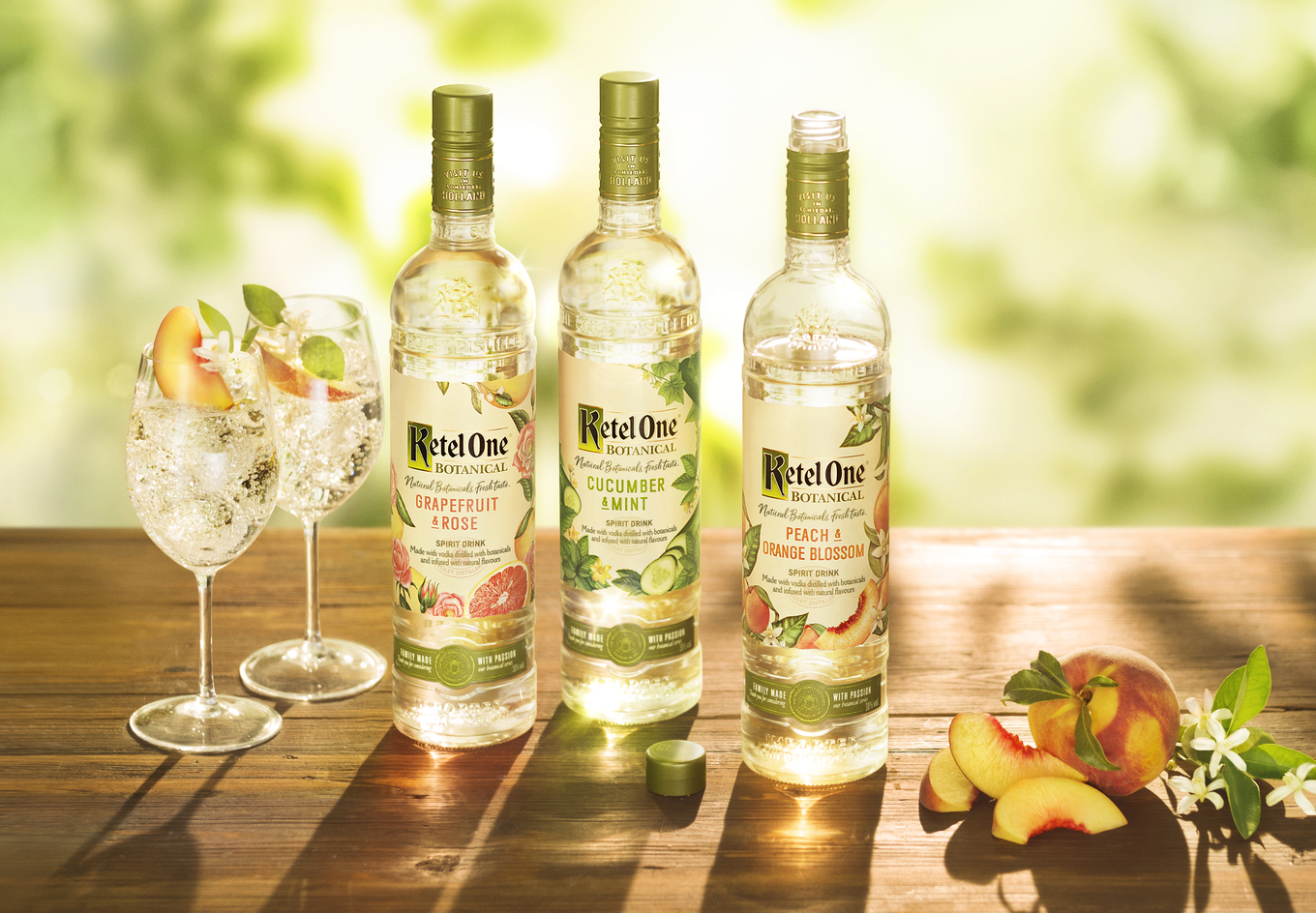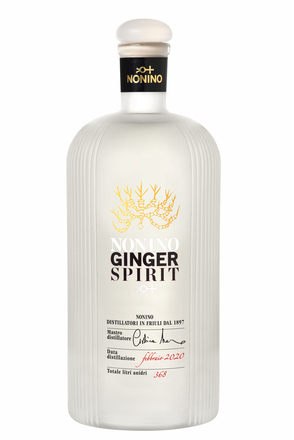Are you a Discerning Drinker?
Join thousands of like-minded professionals and cocktail enthusiasts, receive our weekly newsletters and see pages produced by our community for fellow Discerning Drinkers.
Words by Simon Difford

All the botanical influences and low cost of entry distillation opportunities which gin offers, but without gin's restrictive requirement to include and make juniper predominant. This combination makes Botanical Spirits my bet as being the next big spirits category – a category that offers a diversity of flavour and versatility beyond that of any other spirits category.
Gin is all too easy to make – evidenced by the plethora of new gins and gin distilleries to emerge since 2010. Infuse juniper and a few (or many) other botanicals in neutral spirit, add some water, then re-distil and you'll have yourself a gin. Not necessarily a good gin, but a "gin" nonetheless. But why be constrained by having to use neutral spirit as a base (as per EU gin specifications)? And why insist on juniper? Abandoning the use of the name gin frees these and other shackles, allowing distillers great freedom of expression.
Botanical Spirits are hardly new. Gin, absinthe, flavoured vodkas, eaux-de-vie, akvavit, arak, pastis and ouzo are all Botanical Spirits. However, there is a new wave of spirits that have proudly declared themselves "Botanical" which are made in much the same way as gin.
I was excited when Square One Vodka launched their Square One Botanical Organic Spirit in 2011. This was before the ginaissance took hold and was perhaps a tad ahead of its time. Given that a Botanical Spirit is basically a flavoured vodka, it is perhaps not surprising that it is another vodka brand, Ketel One, that last summer [2018] put Botanical Spirits properly on the map when they launched their three Ketel One botanicals in the U.S.: Grapefruit & Rose; Cucumber & Mint; and Peach & Orange Blossom.
What is a Botanical Spirit?
There is little argument as to what constitutes a botanical, as the
However, thanks to the likes of Seedlip, which brands itself as "Distilled Non-Alcoholic Spirits", there is more controversy to what defines a spirit. Handily, the E.U.'s Regulation 110/2008 (see below) defines a spirit as having a minimum strength of 15% alc./vol.. I'd prefer the industry take a higher benchmark as to the minimum alc./vol. of what a spirit is and I'd suggest 30%, as per Ketel One's Botanical range, as being a more appropriate minimum. When you drink a 30% spirit there is no argument that it has a spirituous taste with the associated prickle on the palate, and importantly, a 30% alc./vol. spirit is volatile.
Personally, I would also like to see Botanical Spirits defined as having a maximum sugar content of 2 grams per litre (2% of total volume), the same as that allowed in Cognac.
The potential
Botanical Spirits may be what saves the gin category from being plagued by vergins: gins verging on being gins due to their lack of juniper. As Botanical Spirits become more fashionable so "gin" distillers wanting to appeal to palates that don't like juniper will be better off omitting the name gin from their label and using Botanical Spirit instead. Perhaps, we'll see Pink Botanical Spirits rather than pink gins.
Botanical Spirits also could provide bartenders with vibrant botanical flavours, the kind of flavours they presently access with liqueurs and flavoured syrups, but without the associated sugar.
Lastly, as demonstrated by the Ketel One Botanical range, these spirits give consumers a flavoursome and refreshing alternative to vodka & soda or gin & tonic.
Regulation 110/2008
For your further reading pleasure, we bring you the E.U.'s Regulation 110/2008.
8. (9) Given the importance and complexity of the spirit drinks sector, it is appropriate to lay down specific measures on the description and presentation of spirit drinks going beyond the horizontal rules established in Directive 2000/ 13/EC of the European Parliament and of the Council of 20 March 2000 on the approximation of the laws of the Member States relating to the labelling, presentation and advertising of foodstuffs (1). Those specific measures should also prevent the misuse of the term 'spirit drink' and the names of spirit drinks for products which do not meet the definitions set out in this Regulation.
1. For the purpose of this Regulation, 'spirit drink' means an alcoholic beverage:
- (a) intended for human consumption;
- (b) possessing particular organoleptic qualities;
- (c) having a minimum alcoholic strength of 15 % vol.;
- (d) having been produced:
2. (i) either directly:
- by the distillation, with or without added flavourings, of naturally fermented products, and/or
- - by the maceration or similar processing of plant materials in ethyl alcohol of agricultural origin and/or distillates of agricultural origin, and/or spirit drinks within the meaning of this Regula- tion, and/or
- - by the addition of flavourings, sugars or other sweetening products listed in Annex I(3) and/or other agricultural products and/or foodstuffs to ethyl alcohol of agricultural origin and/or to distillates of agricultural origin and/or to spirit drinks, within the meaning of this Regulation,
(ii) or by the mixture of a spirit drink with one or more:
- - other spirit drinks, and/or
- - ethyl alcohol of agricultural origin or distillates of agricultural origin, and/or
- - other alcoholic beverages, and/or
- - drinks.

Sacred Cardamom Botanical Distilled Spirit
Category: Spirits
Sub category: Botanical spirits
alc./vol: 40

Ketel One Grapefruit & Rose
Category: Spirits
Sub category: Botanical spirits
alc./vol: 30

Highland Boundary Birch & Elderflower Spirit
Category: Spirits
Sub category: Botanical spirits
alc./vol: 40

Nonino Ginger Spirit
Category: Spirits
Sub category: Botanical spirits
alc./vol: 50

Compass Box Orangerie
Category: Spirits
Sub category: Botanical spirits
alc./vol: 40

Arquebuse de l'Hermitage
Category: Spirits
Sub category: Botanical spirits
alc./vol: 43

Cotswolds Espresso Martini
Category: Spirits
Sub category: Botanical spirits
alc./vol: 29

Jameson Cold Brew
Category: Spirits
Sub category: Botanical spirits
alc./vol: 35

Beefeater Blood Orange
Category: Spirits
Sub category: Botanical spirits
alc./vol: 37.5

Ketel One Cucumber & Mint
Category: Spirits
Sub category: Botanical spirits
alc./vol: 30

Trinity25
Category: Spirits
Sub category: Botanical spirits
alc./vol: 25

Mad City Botanical Rum
Category: Spirits
Sub category: Botanical spirits
alc./vol: 40

Martin & Brown Eastern Spice Botanic Distillate
Category: Spirits
Sub category: Botanical spirits
alc./vol: 40

Highland Boundary Larch & Honeysuckle Spirit
Category: Spirits
Sub category: Botanical spirits
alc./vol: 40

Gattertop Drinks Botanic No 7
Category: Spirits
Sub category: Botanical spirits
alc./vol: 38

Sacred Licorice Botanical Distillate
Category: Spirits
Sub category: Botanical spirits
alc./vol: 40

Sacred Angelica Botanical Distillate
Category: Spirits
Sub category: Botanical spirits
alc./vol: 40

Namida Wasabi Botanical Spirit
Category: Spirits
Sub category: Botanical spirits
alc./vol: 40

Square One Botanical
Category: Spirits
Sub category: Botanical spirits
alc./vol: 45

Albion Racing Club
Category: Spirits
Sub category: Botanical spirits
alc./vol: 42

Cadello
Category: Spirits
Sub category: Botanical spirits
alc./vol: 33.0

Ketel One Peach & Orange Blossom
Category: Spirits
Sub category: Botanical spirits
alc./vol: 30

Sacred Pink Grapefruit Botanical Distillate
Category: Spirits
Sub category: Botanical spirits
alc./vol: 40

Martin & Brown Italian Spice Blend
Category: Spirits
Sub category: Botanical spirits
alc./vol: 40




